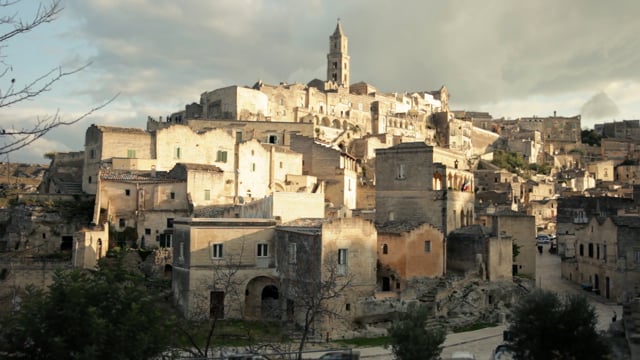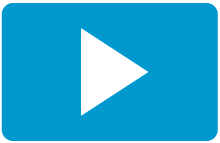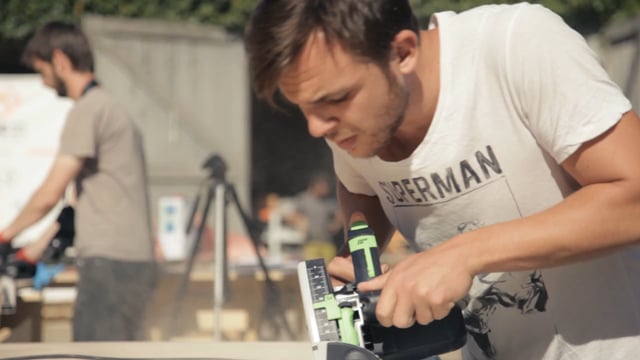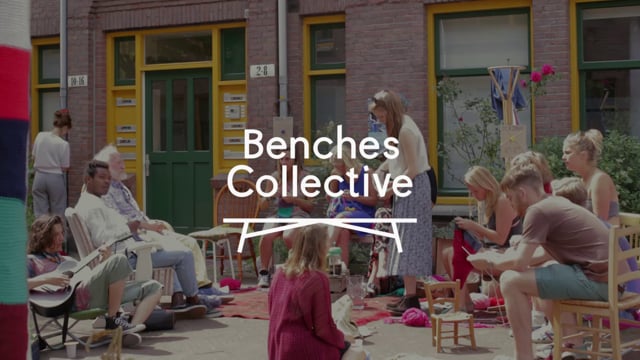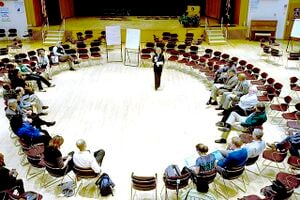
This article is an offshoot from Community involvement and is for global or international resources in that context. The majority of our information about this is collated via our place pages ...Near you.
Visions[edit | edit source]
Radical Visions of Future Government, media.nesta.org.uk (date not found)
CTRLShift 2019 on vimeo
Commons[edit | edit source]
- Paticipedia, A global community sharing knowledge and stories about public participation and democratic innovations.
Community resources[edit | edit source]
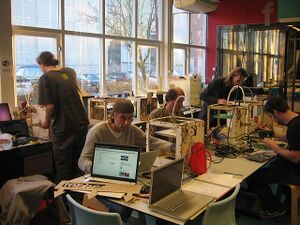
Community resources matter for community empowerment. Although Community and voluntary action has a proud tradition of innovation and doing a lot with a little, it's much harder to do something with virtually nothing. It may be that a community's greatest resource is its people, but community action can perhaps best flourish if backed up with at least some 'real' resources. In partnerships it's been observed that community and voluntary groups can, unfortunately, sometimes get ignored because they are perceived as not bringing any (what other partners percieve as 'real') resources to the table.
- What resources are there in your local community for community groups?
- Are there places for groups to meet (affordably)?
- Is there access to Information Technology and enough support to use it?
- How easy is it for new groups to form and sustain themselves?
- Are there ways for local community groups to network and support themselves and each other?
- Is there access to support for networks (looser groups, coalitions, etc.) and not just older more traditional forms of organisation?
 From Asphalt to Inspiration: The Student-Led Transformation of America’s Schoolyards, reasonstobecheerful.world (Oct 04, 2024)
From Asphalt to Inspiration: The Student-Led Transformation of America’s Schoolyards, reasonstobecheerful.world (Oct 04, 2024)  The idea of a "public diner" has much historical precedent - and leads the way to a better food culture for the future, Daily Alternative (Aug 29, 2024)
The idea of a "public diner" has much historical precedent - and leads the way to a better food culture for the future, Daily Alternative (Aug 29, 2024)  Hurricane blackouts: New Orleans' 'lighthouse' solution to keep the power on through floods and high winds, bbc.co.uk (Aug 07, 2024)
Hurricane blackouts: New Orleans' 'lighthouse' solution to keep the power on through floods and high winds, bbc.co.uk (Aug 07, 2024)
Conversation starters[edit | edit source]
- the Good Life Conversation, Cormac Russell, September 7, 2017 nurturedevelopment.org. "In simple terms the following questions help people to explore what contributions they might make to communities in which they reside."
How to's[edit | edit source]
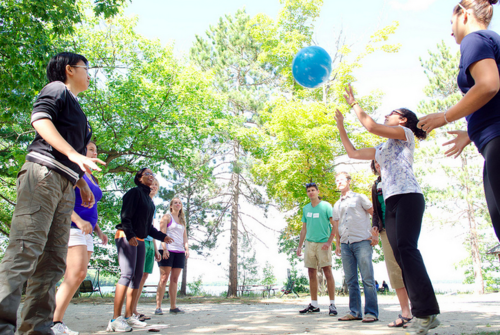
One of the hardest things (besides organising, running and maintaining!) a community group event is getting people to gel together at the beginning meeting(s). Using ice breakers to get people to know each other better is an important part of starting any community group where the members are from different areas and backgrounds.
more how to's:
- How to host: Stress-free communal eating, Wicked Leeks (May 15, 2023)
- Think, Do & Make: how to help people develop projects together by @noelito medium.com, Nov 5 2019
- ‘How to Set up a Municipalist Platform’, Barcelona en Comú, Mar 2016
- How to Start Participatory Budgeting in Your City, Dec 3, 2011, Shareable
Maps[edit | edit source]
Technology for transparency network
Quotes[edit | edit source]
"Turning toward local connection and action
It’s time to swim perpendicular to the tide, time to become a real citizen, and time to practice democracy like my life depends on it, because it does." Neal Gorenflo, January 31, 2020[1]
"With the increasing awareness of movements like Extinction Rebellion and Fridays For Future, citizen activism is a social trend that's here to stay. There’s incredible technology at our fingertips and when used strategically, it has the potential to influence millions." Gabriella Tavini[2]
There resides in all populations a "mass of sense lying in a dormant state - which good government should quietly harness." Tom Paine[3]
*"Where I live in Marin County, it was citizen action that instigated the preservation of hundreds of thousands of acres as open space and parkland; it was not government taking the initiative. That mostly happened in the pre-Internet days. Now that we’ve got the Net and there’s more talent, creativity and freedom in the civic sector than in government, it’s time that citizens once again take the lead in building tools and solving problems for their localities." cfigallo[4]
"Given how radical a departure these participatory ways of working are from the closed-door status quo (or the view that participation is limited to voting and opinion polling), we cannot declare, define, and repeat often enough what it could mean to embrace collaboration and co-creation; to make consultation part of operations on a day-to-day basis; to strive for constant conversation with an engaged and knowledgeable public and to reinvent the conception of public service and of the public servant as the steward of such a conversation.." Beth Simone Noveck[5]
Research[edit | edit source]
From what’s wrong to what’s strong: A guide to community-driven development, researchoutreach.org
Made to Measure, Participatory City, Year 1 Report for the EVERY ONE EVERY DAY initiative
Paticipedia, "an encyclopedia of participatory and deliberative practice"[6]
Living labs
Living labs are open innovation ecosystems in real-life environments using iterative feedback processes throughout a lifecycle approach of an innovation to create sustainable impact. They focus on co-creation, rapid prototyping & testing and scaling-up innovations & businesses, providing (different types of) joint-value to the involved stakeholders. In this context, living labs operate as intermediaries/orchestrators among citizens, research organisations, companies and government agencies/levels.
The European Network of Living Labs (ENoLL) is an international non-profit association (founded in 2007) which aims to promote and enhance user-driven innovation ecosystems, more precise the Living Labs globally.
ENoLL focuses on facilitating knowledge exchange, joint actions and project partnerships among its historically labelled +/- 500 members, influencing EU policies, promoting living labs and enabling their implementation worldwide.
Sharing ideas and actions[edit | edit source]
- Citizens Foundation, connecting government and citizens, added 14:20, 19 December 2020 (UTC), see also: Iceland
- Manifesto for Democracy and Sustainability
Software[edit | edit source]
- Ethical Alternatives & Resources from ethical.net, added 10:41, 8 February 2022 (UTC)
- Polis, "real-time system for gathering, analyzing and understanding what large groups of people think in their own words, enabled by advanced statistics and machine learning", added 10:41, 8 February 2022 (UTC)
- Promise Tracker, Data collection for civic action. After an election, how can citizens hold elected leaders accountable for promises they made during the campaign season? We believe that informed communities, equipped with data, are the best positioned to assess the performance of their representatives and advocate for change on a local level. Promise Tracker explores how citizen monitoring can extend civic engagement between election cycles.
Other Resources[edit | edit source]
- People Powered, global hub for participatory democracy, Resources from peoplepowered.org, Video, peoplepowered.orgadded 10:41, 11 March 2022 (UTC)
- A Charter for Democracy on Commons Transition Strategies Wiki (creative commons license)
- Civic Activism
- Civic Commons Wiki, an effort to provide a permanent, sustainable organization to assist public agencies in the adoption of open systems and collaborative technologies, and to coordinate the co-creation of these technologies among agencies to ensure interoperability and shareability. Civic Commons will provide infrastructure, knowledge, and toolsets to government entities, and encourage the development of shared "civic software" and protocols, and supply optional technical infrastructure (such as data and project hosting) as needed.
- On Relational Facilitation: Supporting the Creative Potential of Divergent Perspectives, by R. Zubizarreta, dk-media.s3.amazonaws.com added 17:30, 17 February 2020 (UTC)
- Imagine Chicago, Imagine projects and networks in th UK, Europe and Australia have been modelled on Imagine Chicago.
- Open Government Partnership Participation & Co-creation Standards, added Feb 2017
- Benchmark study data The state of open data from different perspectives, including that of the public / citizens
- Introducing the Cycle of Transparency, Sunlight Foundation Blog, 03/10/10
- Resources from Imagine Chicago
- Making is Connecting - site about Making is Connecting project, with extracts, video, etc. W
- Regulation on collaboration between citizens and and the City for the care and regeneration of urban commons, comune.bologna.it
- Who Ya Gonna Call? Deliberative Democracy Resources
- Wise Democracy Project
- World café, A world café (styled as World Café) is a structured conversational process for knowledge sharing in which groups of people discuss a topic at several tables, with individuals switching tables periodically and getting introduced to the previous discussion at their new table by a "table host". W
- What is an Empathy Circle? empathycircle.com
See also[edit | edit source]
local information and news can be found, or shared, via our many location pages
References
- ↑ shareable.net
- ↑ thealternative.org.uk
- ↑ Guardian review of Hilary Wainwright’s book Reclaim the State: Adventures in Popular Democracy, July 2003
- ↑ pResilience, April 7, 2009
- ↑ Medium
- ↑ The Alternative UK, Jan 27, 2019




